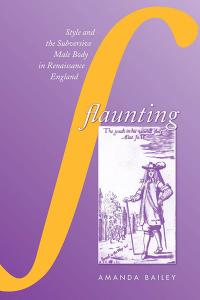Step Into NarraSpace: UMD’s Hub for Immersive Storytelling and Inclusive Scholarship
With VR headsets and tactile tools, UMD's new lab is redefining what scholarship can look—and feel—like.


This collection covers varied perspectives on both canonical and lesser-known Catholic women writers, all focusing on unruliness in what is commonly thought of as a restrictive site of writing for women: Catholicism. This volume is comprised of fourteen selected essays divided into three main sections by chronology: (1) medieval through the seventeenth centuries; (2) eighteenth and nineteenth centuries; and (3) the twentieth and twenty-first centuries. Geared towards scholars of literary criticism and women’s studies, this collection addresses issues of gender and religion that remain central to the lives of many women living in the world today.
Read More about The Catholic Church and Unruly Women Writers: Critical Essays
The liar’s punishment is,
not in the least that he is not believed,
but that he cannot believe anyone else.
–George Bernard Shaw
In March, when Donald J. Trump tweeted that his predecessor, Barack Obama, had illegally wiretapped Trump Tower before the election, I quickly concluded that the claim was absolutely false. I wasn’t alone in my thinking, of course, but what unsettled me to the core was the realization that followed: What if no one holds him accountable for making this accusation? What if this is the new normal? What if, years from now, no one will remember what life was like before Trump? What happens when we forget the language of truth?

In the early modern period, the theatrical stage offered one of the most popular forms of entertainment and aesthetic pleasure. It also fulfilled an important cultural function by displaying modes of behaviour and dramatizing social interaction within a community. Flaunting argues that the theatre in late sixteenth-century England created the conditions for a subculture of style whose members came to distinguish themselves by their sartorial extravagance and social impudence.
Drawing on evidence from legal documents, economic treatises, domestic manuals, accounts of playhouse practices, and stage plays, Amanda Bailey critiques standard accounts maintaining that those who flaunted their apparel were simply aspirants, or gaudy versions of the superiors they sought to emulate. Instead, she suggests that what mattered most was not what these young men wore but how they wore their clothes. These young men shared a distinctive sartorial sensibility and used that sensibility to undermine authority at all levels of society. Flaunting therefore, examines male style as a visual form of subversion against the norms of Renaissance England with the stage as the primary source of inspiration for collective identification.
Read More about Flaunting: Style and the Subversive Male Body in Renaissance England
This original and compelling book places the body at the center of cinema's first decade of emergence and challenges the idea that for early audiences, the new medium's fascination rested on visual spectacle for its own sake. Instead, Auerbach argues, it was the human form in motion that most profoundly shaped early cinema. Auerbach begins his analysis with films that reveal striking anxieties and preoccupations about person on public display -- both exceptional figures, such as 1896 presidential candidate William McKinley, and ordinary people caught by the movie camera in their daily routines.
In 21st Century Approaches to Literature: Middle English, ed. Paul Strohm. Oxford UK: Oxford University Press, 2007. 441-458.
In his attention to detail and in his reverence for the smallest moments of experience Bruce MacKinnon compounds and intensifies the events of daily life. Mystery Schools sings with a passionate and capacious clarity reminiscent of Gerald Stern and like Stern, he portrays our life and death struggles that go on without mercy. --Michael Collier
The "glide in slow circles" may be one means of suggesting the ease of movement and gift for segue inherent in the narratives of these large poems, but it should also define their essential lyricism: how they return and return to their common yet surprising centers of gravity. Mystery Schools is thorough and deeply textured poetry and adult in the way serious poetry should be--by not taking itself too seriously while allowing the writing to take its own good time. --Stanley Plumly
Read More about On Foreign Grounds: Toward an Alternative US Literary History, Archive, Methodology